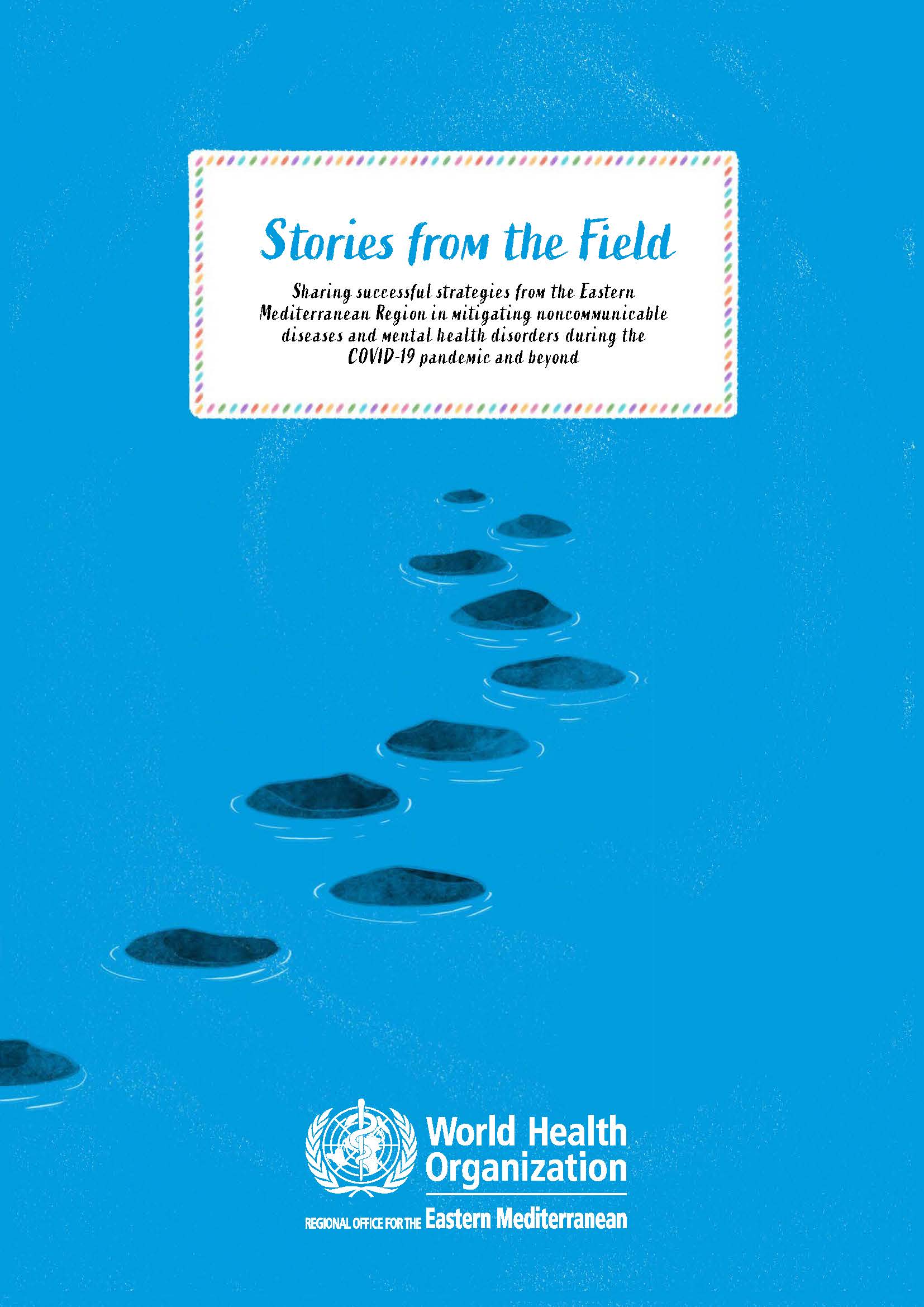
Stories from the field: sharing successful strategies from the Eastern Mediterranean Region in mitigating noncommunicable diseases and mental health disorders during the COVID-19 pandemic and beyond
Publication date: 2023
This publication concentrates on unpublished accounts of what Eastern Mediterranean Region countries have done to address noncommunicable diseases and mental health issues, both before and during the COVID-19 pandemic. The aim is not to give a complete picture of each country’s overall strategy, but to share knowledge and experience with other countries around the world as we confront the global challenges of mental health and NCDs.
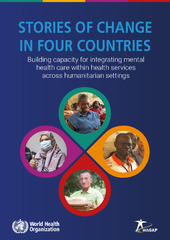
Story of change in four countries
Publication date: 2021
The current report, Stories of change from four countries: Building capacity for integrating mental health care within health services across humanitarian settings, describes efforts in four countries to build evidence-based mental health systems in humanitarian emergency settings using the mhGAP-HIG. This report includes three sections, the first describing the importance of scaling up mental health care in emergency contexts, the second outlining case studies (“stories of change”) to scale up the Mental Health Gap Action Programme (mhGAP) programme in four settings and the third describing lessons learned by stakeholders.
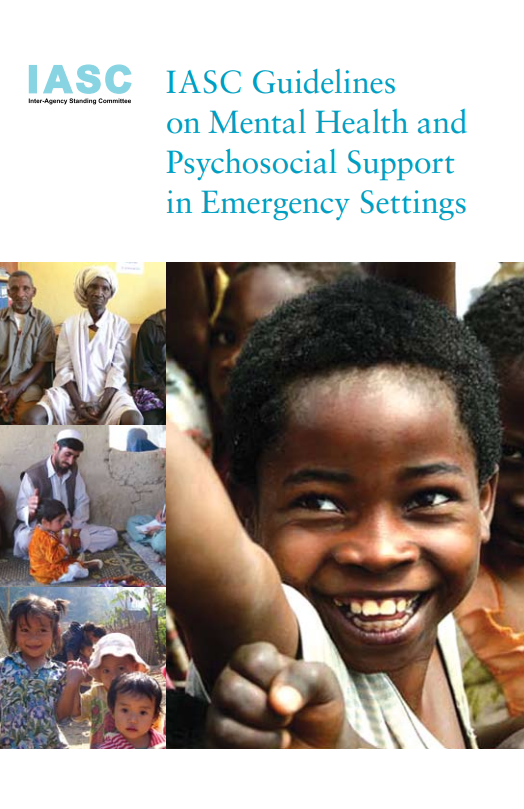
IASC guidelines on mental health and psychosocial support in emergency settings
Publication date: 2007
Initiated by WHO, the IASC Guidelines for Mental Health and Psychosocial Support in Emergency Settings reflect the insights of numerous agencies and practitioners worldwide and provide valuable information to organisations and individuals on how to respond appropriately during humanitarian emergencies.Specific action sheets offer useful guidance on mental health and psychosocial support, and cover the following areas: Coordination, Assessment, Monitoring and Evaluation, Protection and Human Rights Standards, Human Resources, Community Mobilisation and Support, Health Services, Education, Dissemination of Information, Food Security and Nutrition, Shelter and Site Planning and Water and Sanitation.
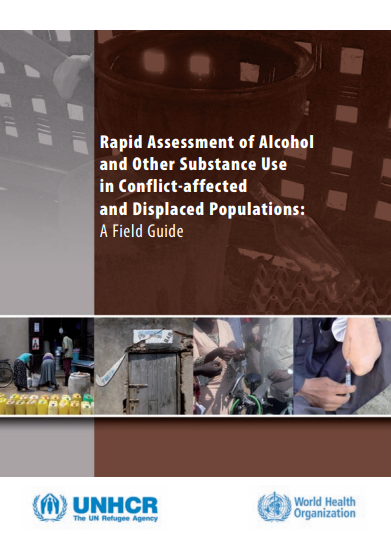
Rapid assessment of alcohol and other substance use in conflict-affected and displaced populations: A field guide (2008)
Publication date: 2008
This guide was developed for conflict-affected populations based on existing rapid assessment methods used in general populations. It takes a public health approach and prioritizes harm and risk reduction related to alcohol and other substance use, including the reduction of HIV transmission risks, to individuals, families and communities.
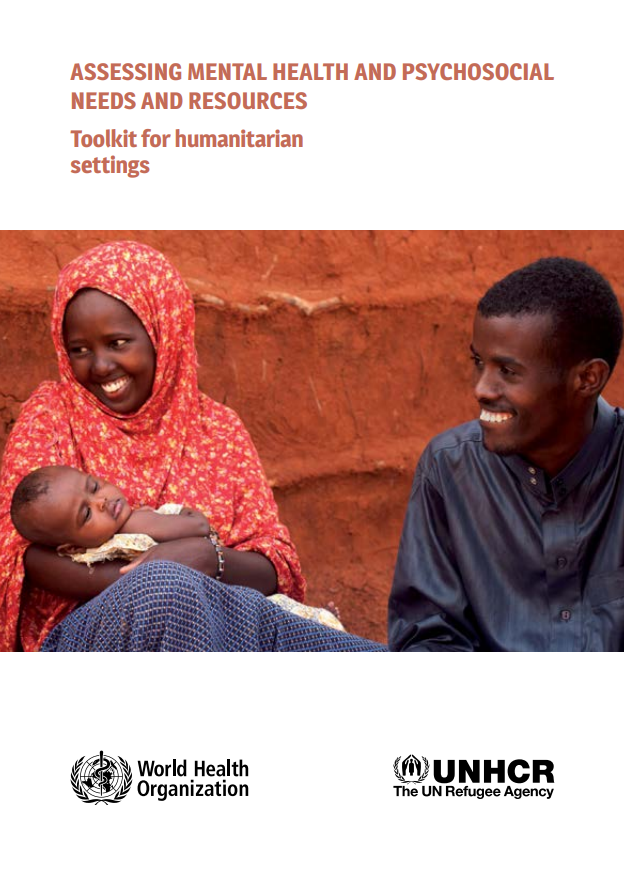
Assessing mental health and psychosocial needs and resources: Toolkit for humanitarian settings (2012)
Publication date: 2012
The WHO-UNHCR publication Assessing Mental Health and Psychosocial Needs and Resources: Toolkit for Humanitarian Settings was developed because of frequent requests from the field to advise on assessment. Although a range of assessment tools exist, what has been missing is an overall approach that clarifies when to use which tool for what purpose. This document offers an approach that should help assessors review information that is already available and only collect new data that will be of practical use.

Building back better Sustainable mental health care after emergencies (2013)
Publication date: 2013
Emergencies, in spite of their tragic nature and adverse effects on mental health, are unparalleled opportunities to build better mental health systems for all people in need. This WHO publication shows how this was done in 10 diverse emergency-affected areas. This is important because mental health is crucial to the overall well-being, functioning, and resilience of individuals, societies, and countries recovering from emergencies.
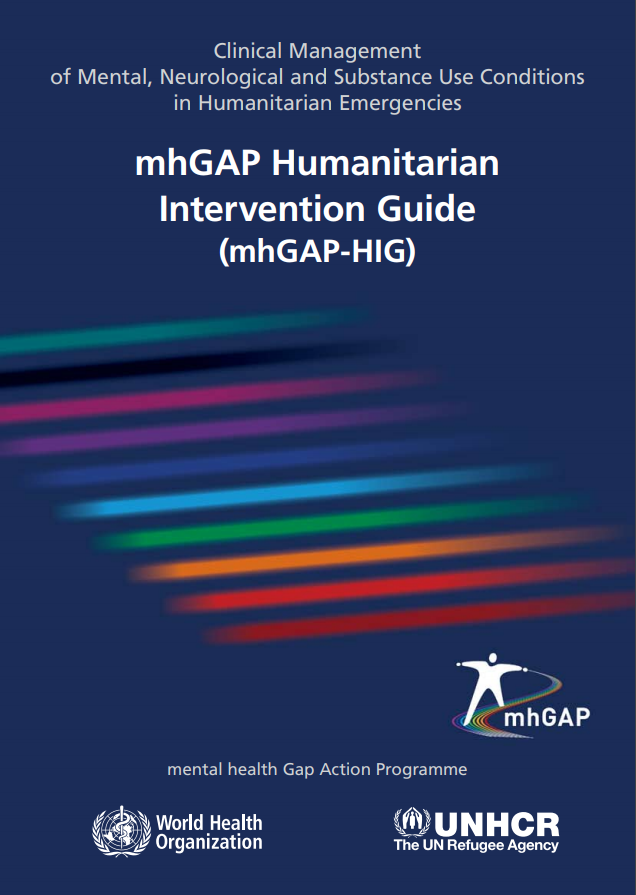
mhGAP Humanitarian Intervention Guide (mhGAP-HIG): Clinical management of mental, neurological and substance use conditions in humanitarian emergencies
Publication date: 2015
The mhGAP Humanitarian Intervention Guide contains first-line management recommendations for mental, neurological and substance use conditions for non-specialist health care providers in humanitarian emergencies where access to specialists and treatment options is limited. It is a simple, practical tool that aims to support general health facilities in areas affected by humanitarian emergencies in assessing and managing acute stress, grief, depression, post-traumatic stress disorder, psychosis, epilepsy, intellectual disability, harmful substance use and risk of suicide. This tool is an adaptation of WHO’s mhGAP Intervention Guide, a widely-used evidence-based manual for the management of these conditions in non-specialized health settings.
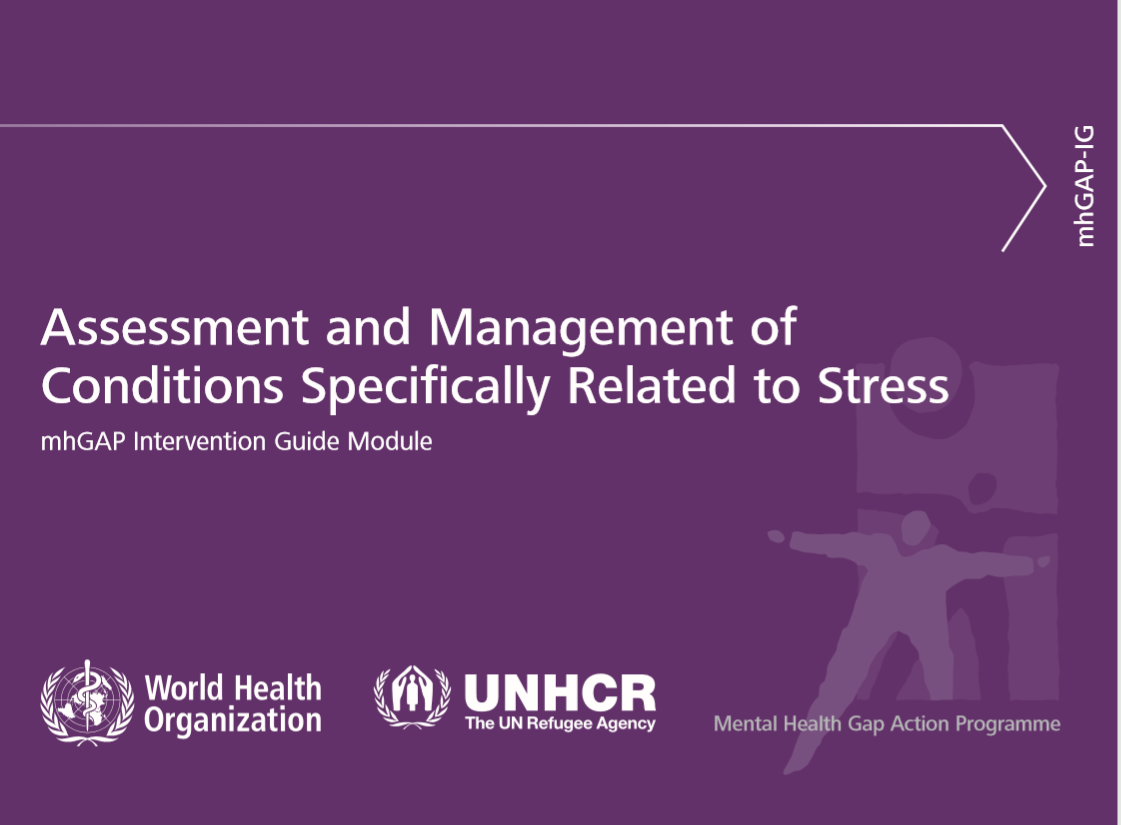
mhGAP module assessment management of conditions specifically related to stress
Publication date: 2013
This mhGAP module on Conditions Specifically Related to Stress by WHO and UNHCR contains assessment and management advice related to acute stress, post-traumatic stress and grief in non-specialized health settings. It is an annex to the mhGAP Intervention Guide for mental, neurological and substance use disorders in non-specialized health settings.
Related links
mhGAP publications
mhGAP module assessment management of conditions specifically related to stress
mhGAP newsletters
mhGAP forum reports








